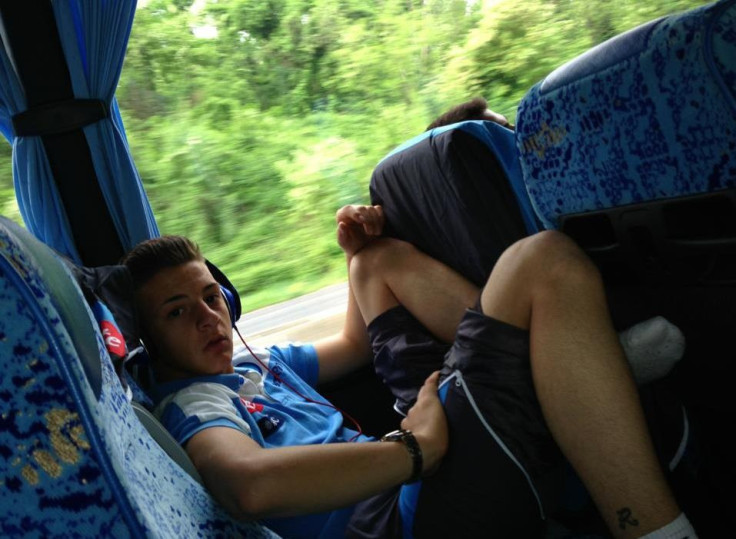Former Napoli youth footballer Renato Di Giovanni gunned down in broad daylight
The 21-year-old who had been arrested for selling drugs was targeted on the outskirts of Naples.

A former Napoli youth footballer has been gunned down in broad daylight in the Italian city of Naples. Renato Di Giovanni who was once a promising player, appearing dozens of times in the Italian youth set up, was shot dead by at least one shooter who opened fire before fleeing on a scooter.
The shooting took place in front of the Santa Maria di Montevergine church in the Soccavo district on the western outskirts of the city.
The 21-year-old suffered fatal injuries from multiple gunshot wounds and died at the scene.
Onlookers surrounded the area of the shooting, some wearing the famous sky blue of SSC Napoli, which was cordoned off by police after the incident at around 12.15pm on Friday 27 January.
Di Giovanni once featured on the bench for Napoli against Arsenal in the UEFA Youth League and scored in a 2014 tournament against other youth teams from around the world. But he was let go from the club in 2014 without appearing for the senior side.
According to the Italy-based Gazzetta Dello Sport was described by those that knew him as a "cute boy, a street urchin, but certainly not a criminal" but once his football career was over he began drug dealing.
In October 2016 he was arrested along with four others for drug-related offences, namely the supply of marijuana and hashish. Di Giovanni is believed to be the godson of notorious Napoli 'ultra' Alberto Mattera although it has not been reported if Di Giovanni had been involved in football violence.
The killing has been linked to the Camorra - one of the oldest mafia-type organisations in Italy. The Camorra hails from the Campania region and is believed to have two subgroups: the so-called metropolitan and provincial Camorra.
The Metropolitan arm is typical of Naples and is characterised by a very fragmented criminal scene, with a myriad of medium-small gangs controlling neighbourhoods and districts. Meanwhile the provincial camorra refers instead, principally, to clans based in rural areas.
© Copyright IBTimes 2025. All rights reserved.




















